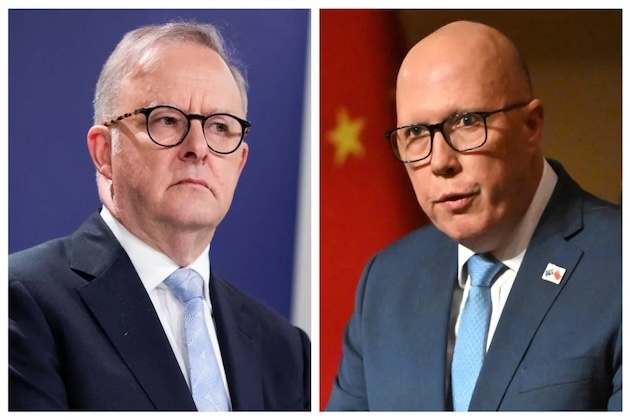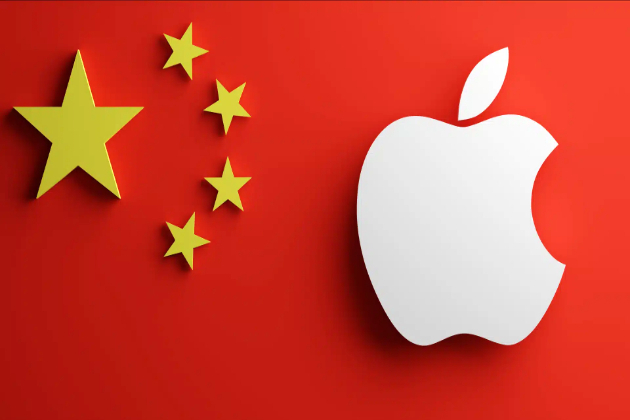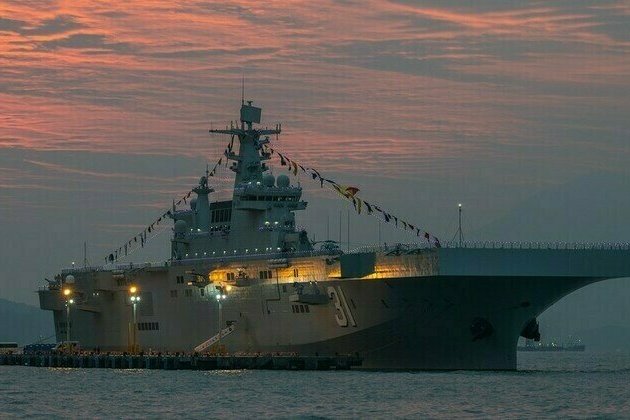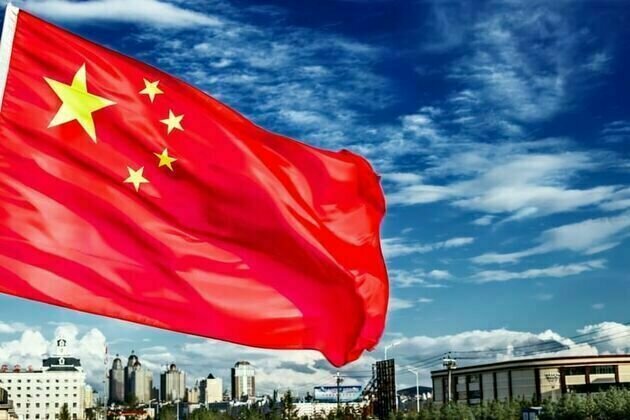The West is breaking up, here is what Russia and China must do
RT.com
01 Apr 2025, 14:16 GMT+10
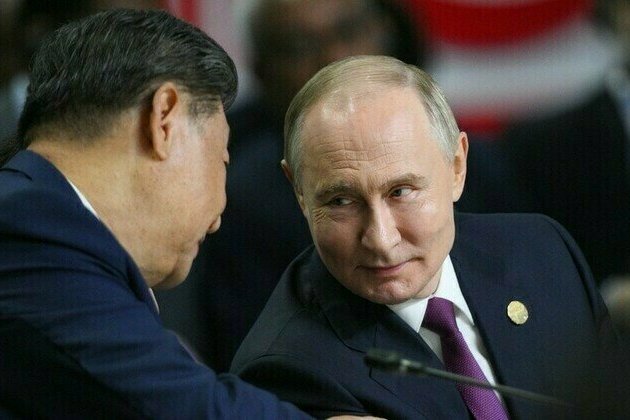
The old world is fading. Moscow and Beijing are building the new one
Russia and China have emerged in recent years as standard-bearers of a world that aspires to multipolarity, sovereignty, and respect for international law. Their strategic partnership, tested by global crises and geopolitical turbulence, now serves as a cornerstone of what is often called the "world majority" - a growing group of states seeking independence in foreign policy and development.
Despite intense Western pressure, including sanctions and information campaigns, Moscow and Beijing have preserved and even deepened their cooperation. This partnership is not only important to both countries, but it also carries global significance. It is a model for how major powers can challenge hegemonic structures while remaining committed to international norms.
As Russia and China consolidate their own partnership, they must also pay close attention to major changes underway in the Western world. These changes, particularly in the United States and Europe, are opening new opportunities - but also bring risks that must be understood and addressed.
Fractures in the Western bloc
First, there is growing divergence between the United States and its European allies. We have seen Western European capitals express dismay and confusion over several decisions from Washington, indicating a widening strategic gap. As these countries try to recalibrate in response to an increasingly unpredictable United States, mutual misunderstandings are multiplying. What was once a coherent and unified "collective West" is now a patchwork of competing interests and visions.
This fragmentation deserves close attention from Russian and Chinese policymakers and experts. A coordinated approach to monitoring US-EU relations and engaging in joint analysis will be essential for navigating the future.
Second, internal divisions are widening within the political elites of Western countries. One camp recognizes the need to adapt to global shifts and internal socioeconomic challenges. Another clings to outdated globalist models, attempting to preserve Western dominance without addressing the root causes of their decline.
This internal rift is especially evident in the United States, where political polarization has become extreme. The outcome of this struggle is far from clear. But it may result in more erratic and aggressive foreign policies, including toward Russia and China. Western elites may try to externalize their internal failures by escalating global tensions. Moscow and Beijing must be prepared for this possibility.
Strategic economic cooperation
The Russia-China economic relationship has proven resilient, even in the face of relentless US and European attempts to isolate both powers. Still, recent years have revealed vulnerabilities. Threats of sanctions and secondary pressure have disrupted trade flows and delayed projects. A critical task for both governments is to identify weak points and develop safeguards.
By insulating their cooperation from external interference, Russia and China can reinforce mutual trust and build an even stronger foundation for political alignment. This will be especially important as Western pressure continues.
The role of Europe
Western Europe remains a complex factor in global affairs. Its economic weight is still significant, especially for China, and its cultural and political evolution bears close watching. Russian and Chinese analysts sometimes differ in their assessments of the region's future role. But neither side should ignore it.
Upcoming political changes across European states could open the door for more pragmatic leadership. If so, Moscow and Beijing must be ready to engage. Even now, despite deteriorating ties, Western Europe remains an important partner and a variable in the broader strategic equation.
Countering Western divide-and-rule tactics
US policymakers have made no secret of their interest in weakening the Russia-China partnership. Some have floated the idea of pulling Moscow away from Beijing to prevent a deeper Eurasian consolidation. These efforts will intensify, especially if US-China relations worsen.
We should expect Washington to seek separate dialogues with Russia and China on issues such as cybersecurity, artificial intelligence, and nuclear arms control. The goal will be to highlight differences and create the illusion of divergent interests.
Such moves must be met with caution and solidarity. There are no serious contradictions between Russia and China that could compare with the historical tensions of the mid-20th century. The current strategic alignment is based on shared values and practical interests. But this unity must be constantly reinforced at both the governmental and societal levels.
Expanding societal and scientific ties
Public perceptions in both countries still carry traces of old stereotypes. While progress has been made in people-to-people exchanges, educational programs, and academic cooperation, more can be done. Greater collaboration in science, education, and cultural initiatives can deepen mutual understanding and eliminate lingering mistrust.
A stronger societal foundation for the bilateral relationship will make it more resistant to external manipulation. The political will exists; now it must be translated into concrete initiatives.
Toward a shared Eurasian future
Finally, China and Russia share responsibility for shaping a peaceful and prosperous Greater Eurasia. They are both committed to preventing external interference and managing conflicts across the continent. Coordinating their strategies for development, connectivity, and conflict resolution in this vast region is not only desirable - it is imperative.
The future of Eurasia depends in large part on how effectively Moscow and Beijing can harmonize their visions. This is not merely an academic debate but a real-world challenge with lasting implications.
Conclusion
Russia and China are navigating an era of profound global change. Their partnership has already become one of the most consequential in world politics. But the shifting dynamics of the West, particularly the emerging crises within the United States and Europe, present both dangers and opportunities.
To protect and advance their shared interests, Russia and China must act strategically: studying Western developments, reinforcing their own cooperation, countering divide-and-rule tactics, and deepening ties across all levels of society. Together, they can help shape a world order that is more just, stable, and representative of the true diversity of global power.
This article was first published byValdai Discussion Club, translated and edited by the RT team.
(RT.com)
 Share
Share
 Tweet
Tweet
 Share
Share
 Flip
Flip
 Email
Email
Watch latest videos
Subscribe and Follow
Get a daily dose of China National News news through our daily email, its complimentary and keeps you fully up to date with world and business news as well.
News RELEASES
Publish news of your business, community or sports group, personnel appointments, major event and more by submitting a news release to China National News.
More InformationBusiness
SectionCoffee prices set to soar as bean costs and supply woes mount
LONDON/NEW YORK CITY: A cup of coffee could soon cost you a lot more. Roasters worldwide are warning of double-digit price hikes as...
U.S. stocks close mixed Monday on eve of trade war escalation
NEW YORK, New York - Industrial stocks advanced while the tech sector was under considerable prressure Monday as Liberation Day, approaches....
Global automakers face disruption as US tariffs set to take effect
BERLIN/DETROIT: Automakers worldwide are bracing for the impact of sweeping new U.S. tariffs that could reshape global vehicle production...
Dollar Tree sells Family Dollar in $1 billion exit deal
CHARLOTTE, North Carolina: Dollar Tree is cutting ties with its struggling Family Dollar chain in a US$1 billion deal that marks the...
BYD aims to double overseas EV sales to 800,000 in 2025
SHANGHAI, China: As global demand for electric vehicles continues to rise, China's BYD is looking to double its overseas sales to over...
To meet US AI energy surge, Schneider Electric invests $700 million
ANDOVER, Massachusetts: As artificial intelligence drives up energy demand across the United States, Schneider Electric is making a...
Asia Pacific
SectionSurvey shows ALP would win Federal election if held now
MELBOURNE, Victoria - If a federal election were held today, the Australian Labor Party (ALP) would be re-elected with an increased...
Japan’s cherry blossom season officially begins in Tokyo
TOKYO, Japan: This week, Japan's cherry blossom season officially began as experts confirmed the first blooms in Tokyo. A specialist...
China reassures Apple CEO Tim Cook amid geopolitical tensions
BEIJING, China: As global tech firms navigate rising geopolitical tensions, China has extended a warm signal to Apple, one of its most...
Hyundai to invest $20 billion in US, build steel plant in Louisiana
WASHINGTON, D.C.:/SEOUL: Hyundai Motor Group is set to dramatically expand its U.S. footprint, with a US$20 billion investment that...
China announces military exercise near Taiwan
Days earlier, a US manufacturer delivered an advanced version of the F-16 fighter jet to officials in Taipei The Chinese People's...
China launches test satellite for satellite internet technology
BEIJING, 1st April, 2025 (WAM) -- China sent a test satellite for satellite internet technology into space from the Jiuquan Satellite...







